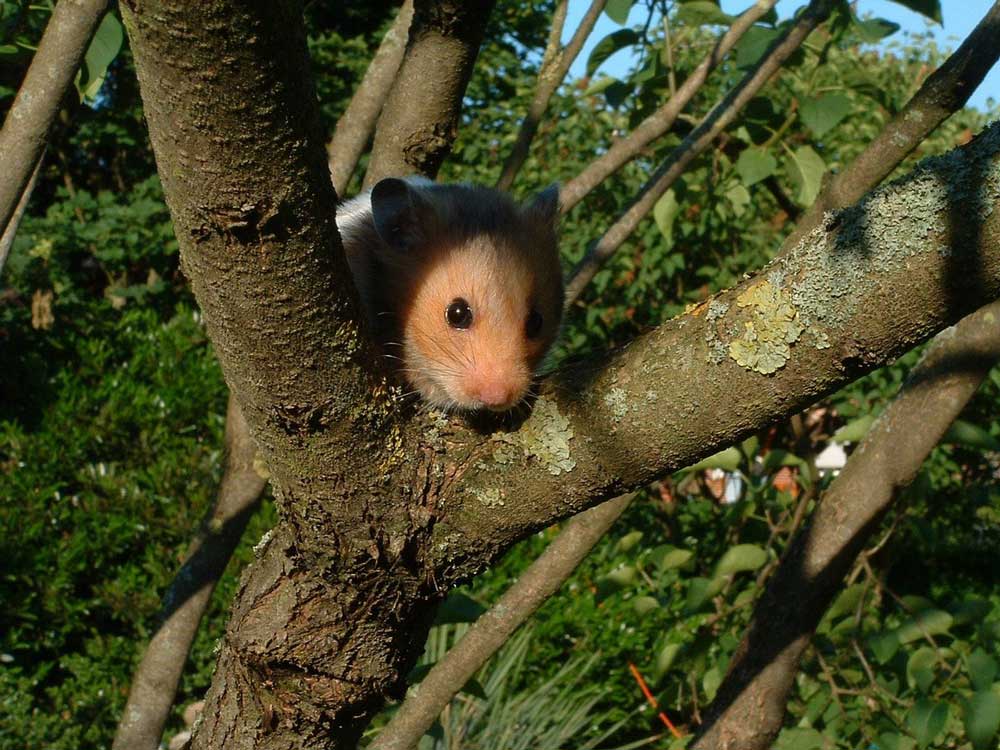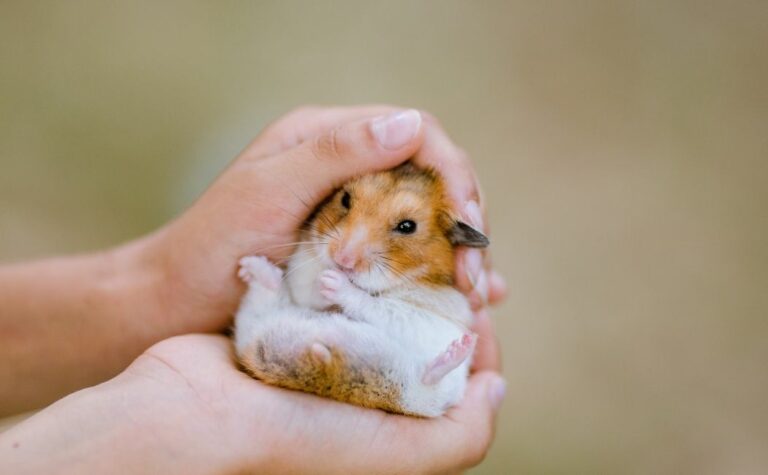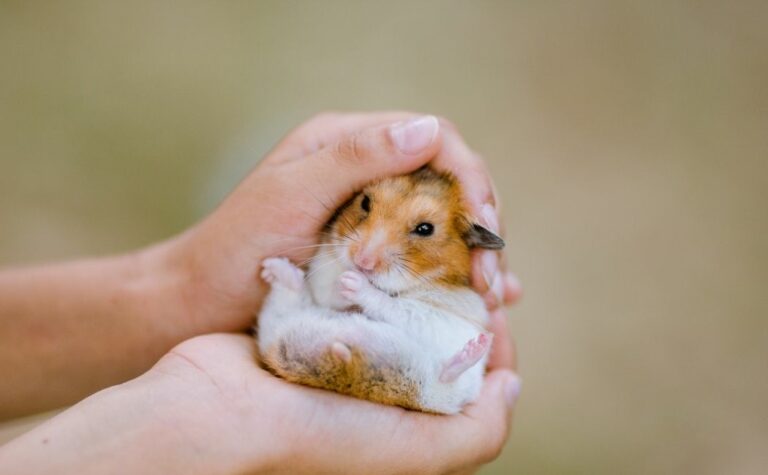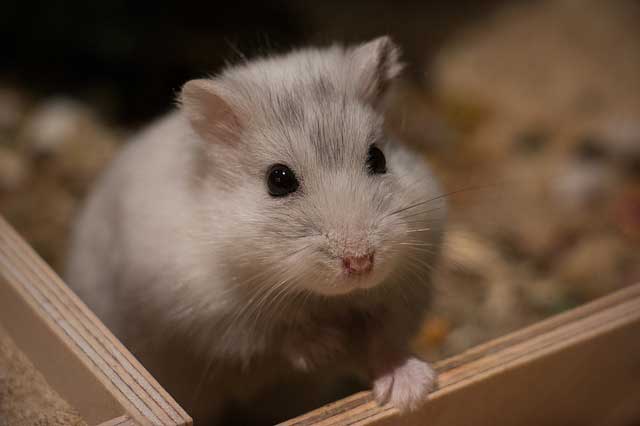Can I Release My Hamster Into The Wild? (Other Better Alternatives)
Hamsters originate from warm dry areas where they prefer living around sand dunes and near desert edges. Their native land is Syria although they have also been in other countries like Romania, Northern China, Greece, and Belgium.
Hamsters were domesticated from the 1930s when they started becoming common family pets after breeding. Some still live in the wild.
Their normal lives involve a lot of running and hiding from predators, searching for food, and digging underground tunnels leading to burrows for various purposes including giving birth.
Hamsters are kept as pets due to their adorable furry and cuddly nature. Sometimes though, something could prompt you to think of letting go of them.
If this is the dilemma that you are in and you are not sure if it’s okay to release them or not, stick around because I have all the answers right here.
Can I release my hamster into the wild?
You should not release your hamster into the wild. This is because domesticated hamsters do not know how to survive in the wild. They are used to being protected from predators in their safe cages and provided with all their basic needs including a balanced diet and medical care. If you release them, they will face the dangers of malnutrition, predators, parasites, harsh environments, and early death.
Why would you release your pet into the wild
You may have adopted your hamster as a tiny fascinating addition to the family. Hamsters are generally considered to be low maintenance pets as they are small and do not require a lot to care for.
However, sometimes you may adopt one but realize that taking care of them is not an actual walk in the park. Here are some of the reasons why you may decide that you have had enough of your furry friend and want to release them for good:
Maintenance costs
A hamster will be cheap to purchase and most of the initial costs will be for the cage, accessories, and toys. As the days go by, you will be required to provide a balanced diet, bedding, and medical care.
This ongoing maintenance may prove to be hard. In the long run, you may decide to just let them go if the small pet has become a burden.
No time for them
Hamsters need to be shown regular love and care. They will require your time to clean up for them, offer them food, change their water, and give them some attention.
The challenge comes in when your time clashes with theirs. Hamsters are nocturnal and they will be active at night while sleeping during the day. You on the other hand may have to work during the day and be too tired in the evening to have time for them.
This could make you unable to cater to their needs as you are supposed to. You may neglect them unintentionally which will affect them and you too. This could make you choose to just release them.
Their nature
Hamsters have different personalities and not all will be cuddly and fun to have. Some may be grumpy and temperamental.
It could be their nature or they could have just changed suddenly. They could bite or scratch whenever you go near them whether you want to hold them or clean up their cage.
This could make you uneasy and frustrated as you are unsure of how to take care of them if they are that aggressive towards you. You could then decide to release them into the wild.
Differences between wild and domesticated hamsters
Wild hamsters will have different character traits compared to domesticated hamsters. They have varying survival instincts and needs making them behave differently.
Wild hamsters are taught by their mothers how to forage and escape from predators since they are young. They can walk for long distances in search of food, store it in their pouches to hide in burrows, and are more alert as predators could appear from nowhere.
The wild hamsters will also be more aggressive compared to domesticated ones who will not be prompted to attack as much.
Domesticated hamsters will be dependent on you for every need they have from food and water to bedding and medical care. They would not know how to forage, where to hide, the risk they are in of predators, and how to cope with other risks that face them out there.
Their survival rate on their own is very low and releasing them into the wild is like releasing them to a painful early death.
Risks that your hamster faces while released into the wild
A hamster that was already used to being taken care of in every way will have a hard time when they no longer have someone there for them. They will face dangers and risks like:
Malnutrition
Wild hamsters will naturally forage to feed on grass, seeds, insects like crickets, and fruits like wild berries. Domesticated hamsters on the other hand are used to having a well-balanced diet provided for them.
They will wait in their cages for pellets, veggies, fruits, grains, and proteins like nuts or chicken. They are not used to finding food on their own which will make them unable to get the right foods if they were to forage for themselves.
This will easily lead to malnutrition and they could even eat foods that they are not supposed to.
Predators
Wild hamsters have sharp alertness to take off in case they sense a predator nearby. They know where their hiding burrows are and they will immediately run there.
Pet hamsters on the other hand are used to living in an enclosed secure cage that has no threats of predators. This makes them let down their guard and not be on the lookout for predators as much.
They will be unable to tell how bad they are in danger of predators when they are out there. They become an easy catch too because they are not used to running fast enough and they will be in unfamiliar territory where they will not know where to hide.
Parasites and sickness
Pet hamsters get immediate veterinary care whenever they show signs of illness. This enables them to get the required treatment fast saving them from the agony of disease especially the common diseases like colds and wet tail.
They will also live in neat environments where their bedding is regularly cleaned and they are groomed if they have long hair. This keeps mites and parasites away.
Being in the wild, the small pet will be at high risk of parasites and diseases which can be fatal.
Harsh environments
A pet hamster will live in a cozy home that is warm with soft bedding to sleep on and toys to play with.
If they are out there, they will lack that and have to deal with harsh environments that they are not used to. This will confuse, frustrate, and even make them sick.
They could even die from outdoor weather extremes.
Accidents
A released hamster will be unaware of their surroundings. The unfamiliarity could make them anxious and they can run into roads and risk getting hit by a car.
Better, Safe, and Less-cruel alternatives to releasing a hamster into the wild
As we have seen, releasing the tiny creature into unknown territory will not be the best thing you can do for them. It’s cruel and your beloved pet will probably meet their death painfully.
Their survival chances are very slim and if they do not die right away, they will suffer before ultimately meeting their death which would not be what you want.
Instead, you can opt for better ways of getting rid of your small family member. They are:
Giving them to a relative or friend
A family member or friend could be dying to own a hamster. All you need to do is ask around if anyone close to you would want to adopt your pet.
If not, they could even know someone who does.
Animal shelter
You could take them to a nearby animal shelter. You may be required to take the pet together with their cage and accessories.
They can be adopted from here to a loving home which is another win-win situation for both of you.
Pet store
You can also take them back to the pet store that you got them from or to a different one.
Online
If all else fails, try using the power of social media. You can seek the help of animal groups. Just be sure that you are giving your pet to someone you can trust as they can be adopted for the wrong reasons.
Conclusion
Releasing your pet into the wild is a cruel thing to do. They could easily be eaten by predators or die from malnutrition, parasites, and harsh living conditions as they do not know how to fend for and protect themselves.
Instead of doing that, opt for safe alternatives like giving them to someone you know, taking them to a pet store, animal shelter, or asking around online. These ways are safer and better for your small defenseless pet to find a new home.
- Can Hamsters Travel in a Car? (Read This First)
- Why Do Hamsters Put Food in Their Cheeks? (Explained!)
- Can Hamsters Live Outside? (What You Should Know)
- Can Hamsters Learn Their Name? (Know The Details)
- Can Hamsters Eat Ice Cream? (Read This First)







